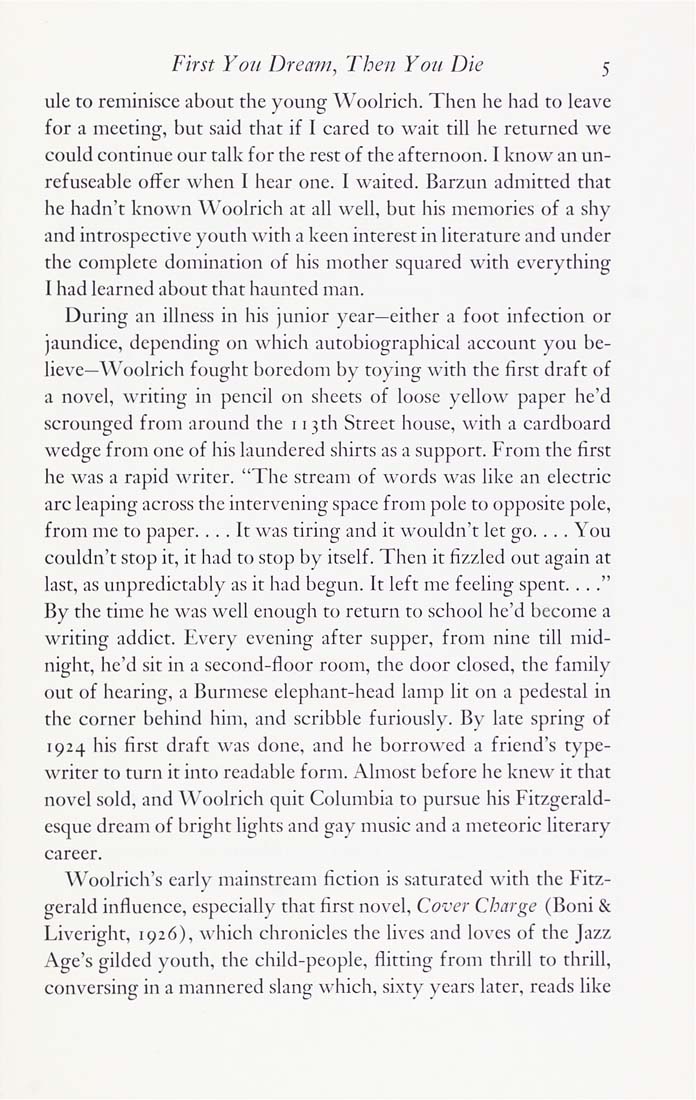Columbia Library columns (v.35(1985Nov-1986May))
(New York : Friends of the Columbia Libraries. )
|
||
|
|
|
|
| v.35,no.2(1986:Feb): Page 5 |

First You Dream, Then You Die 5 ule to reminisce about the young A\'oolrich. Then be bad to leave for a meeting, but said that if I cared to wait till he returned we could continue our talk for the rest of the afternoon. I know an un- rcfuscable offer when I hear one. I waited. Barzun admitted that be hadn't known Woolrich at all well, but his memories of a shy and introspectix'C youth with a keen interest in literatute and under the ct)mplete domination of his mother squared with everything I had learned about that haunted man. During an illness in his junior year—either a foot infection or jaundice, depending on which autobiographical account you be¬ lieve—Woolrich fought boredom by toying \\'ith the fitst draft of a novel, writing in pencil on sheets of loose yellow paper he'd scrounged from around the 113th Street house, with a cardboard wedge from one of his laundered shirts as a support. From the first he was a rapid writer. "The stream of words was like an electric arc leaping across the intervening space from pole to opposite pole, from me to paper. ... It was tiring and it wouldn't let go. . . . You couldn't stop it, it had to stop by itself. Then it fizzled out again at last, as unpredictably as it bad begun. It left me feeling spent. . . ." By the time he was well enough to return to school he'd become a writing addict. Every evening after supper, from nine till mid¬ night, he'd sit in a second-floor room, the door closed, the family out of bearing, a Burmese elephant-head lamp lit on a pedestal in the corner behind him, and scribble furiously. By late spting of 1924 bis first draft was done, and he borrowed a friend's type¬ writer to turn it into readable form. Almost before be knew it that novel sold, and \\'oolrich quit Columbia to pursue his Fitzgerald- esquc dream of bright lights and gay music and a meteoric literary career. ^Voolrich's carh' mainstream fiction is saturated with the Fitz¬ gerald influence, especially that first novel. Cover Charge (Boni & Liveright, 1926), w hich chronicles the lives and loves of the Jazz Age's gilded youth, the child-people, flitting from thrill to thrill, conversing in a mannered slang which, sixty years later, reads like |
| v.35,no.2(1986:Feb): Page 5 |







